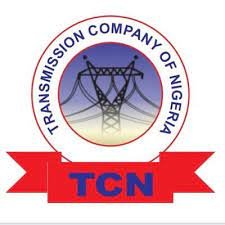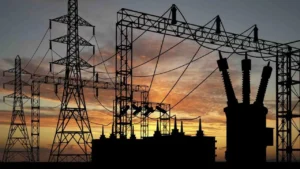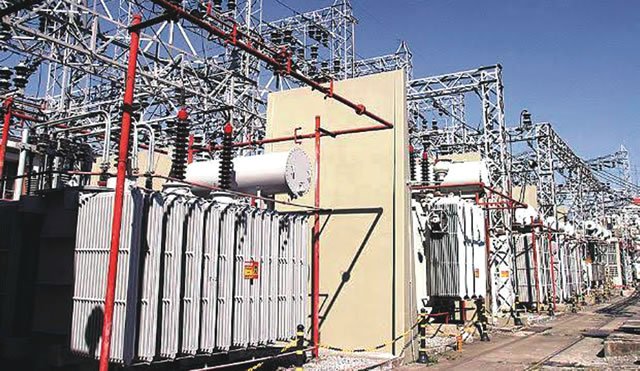During his interactions with across sector of Kano residents, roving Hussaini Kafi discovered that scores would have to start life afresh as their economic life has paralysed due to the power outage. Individuals and organisations count their loses while efforts are made to restore electricity.
The recent widespread blackout in Northern Nigeria has inflicted a devastating impact on businesses across the region. From bustling commercial hubs like Kano to smaller towns in Katsina, Kaduna, Jigawa and Bauchi states.
On 22nd October 2024, the Transmission Company of Nigeria (TCN) reported power outage in the northeast, northwest and parts of north-central after 330-kilovolt (kV) Ugwaji–Apir double circuit transmission lines 1 and 2 tripped.

Contained in a statement by Ndidi Mbah, the General Manager, public affairs, TCN said the transmission lines tripped around 4:53am “due to a fault.”
“The Transmission Company of Nigeria (TCN) reports that its 330kV Ugwaji–Apir Double Circuit transmission lines1&2, tripped due to a fault, resulting in a forced power outage affecting the North East, North West and parts of North Central,” the commission said.
“At approximately 4:53 am, the Ugwuaji-Makurdi 330kV Line 2 tripped, and 243 MW on that line was transferred to Line 1 on the same route. At 4:58 am, Line 1 also tripped, resulting in a total loss of 468 MW. By around 5:15 am and 5:17 am, Line 1 and Line 2 were tried, but they all tripped immediately on the same relay indication.
What is the cause?
The Minister of Power, Chief Adebayo Adelabu, has attributed the current blackout in the northern part of the country to sabotage and vandalization of the infrastructure of the ministry and not grid collapse.


The Minister spoke when he appeared before the Senate Committee on Power at the National Assembly in Abuja.
In Kano, a major commercial center, businesses of all sizes have been affected. Small-scale traders, who rely on daily earnings, have been particularly hard-hit. Many have been forced to close shop due to the inability to power their equipment and lighting.
A welder man from Kano has been forced to close his workshop due to the persistent power outages in the state.
The young man, Idris Abdullahi, said he can no longer afford to purchase petrol to power his welding equipment. “Initially, our regular rates couldn’t cover the cost of petrol,” he lamented. “I had no choice but to close my workshop.”
Hotels and restaurants have also faced challenges. The lack of power has disrupted operations, leading to discomfort for guests and reduced revenue.
“We’ve had to resort to using generators, which is incredibly expensive,” said Ibrahim, a hotel owner in Kano. “The cost of fuel has skyrocketed, and we’re forced to pass on these additional costs to our customers. It’s a difficult situation for everyone.”
In Niger State, civil servants have also been affected by the power outage. Many government offices rely on computers and other electronic devices for their daily work. The lack of power has slowed down operations and reduced productivity.
“We’re struggling to meet deadlines and provide essential services to the public,” said a civil servant in Minna, Niger State. “The constant power outages have made it difficult to concentrate and complete our tasks.”
A resident of Katsina State echoed her grieving experience stating that: “It’s been a tough time. We’ve been facing frequent power outage, and it’s really disrupted our daily lives. Now, we have to walk for a whole mile just to find a water vendor. Even if we have the money to pay, we still have to beg them to come to our homes. And to make matters worse, they’ve increased the price of a bottle of water from N50/80 to N150.


“It’s been incredibly challenging. We can only manage to bathe once a day. Most of our clothes are dirty because of the severe water shortage. We can’t afford petrol to power our generators, so we’re completely reliant on boreholes, which are often unreliable”
The prolonged power outages in Funtua have also led to a significant increase in the price of water, making it increasingly inaccessible for many residents.
A local water vendor revealed that the price of water has surged from N150 to N500 per wheelbarrow. This drastic price hike is attributed to the rising cost of operating boreholes, which rely heavily on electricity.
With many residents unable to afford the exorbitant prices, they are resorting to fetching water from nearby rivers, a practice that poses serious health risks. This alarming trend underscores the urgent need for reliable power supply to alleviate the water crisis in Funtua and other affected areas.
Beyond the immediate economic impact, the power outage has also resulted in significant losses for small and medium-scale businesses, according to Alhaji Sani Hussaini Sale Birninkudu, a prominent figure in the manufacturing sector.
As the former Chairman of the Manufacturers Association of Nigeria (MAN) Kano State Branch and a member of the National Executive Council, Birninkudu estimates that businesses have already lost over N500 billion during the week-long blackout. He warns that if the power outages persist for a month, the losses could escalate to a staggering N1 trillion.
Birninkudu expressed deep concern over the disproportionate impact of power outages on the Northern region, particularly Kano State. With a population of over 120 million, primarily young people, the region’s reliance on electricity is crucial for economic growth and job creation. However, the frequent and prolonged power cuts have led to a surge in unemployment.

The prolonged power outage has highlighted the urgent need for a more reliable and sustainable power supply in Northern Nigeria. The government and power distribution companies must take immediate steps to address the issue and prevent future disruptions.
Until a lasting solution is found, businesses and individuals in the region will continue to suffer the consequences of the frequent power outages.



